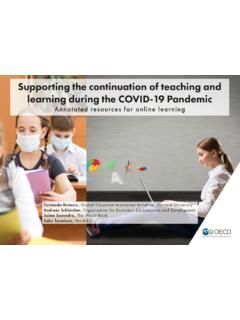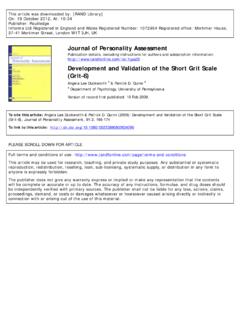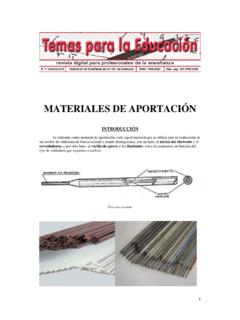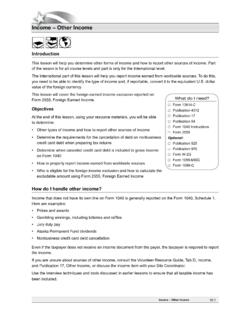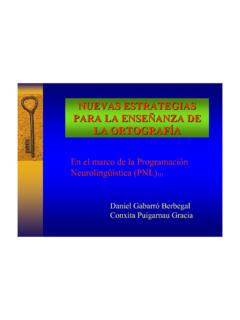Transcription of A framework to guide an education response to the COVID …
1 Fernando M. Reimers, Global education Innovation Initiative, Harvard Graduate School of EducationAndreas Schleicher, Directorate of education and Skills, Organisation for Economic Co-operation and DevelopmentA framework to guide an education response to the COVID -19 Pandemic of 2020 SummaryThis report aims at supporting education decision making to develop and implement effective education responses to the COVID -19 Pandemic. The report explains why the necessary social isolation measures will disrupt school-based education for several months in most countries around the world. Absent an intentional and effective strategy to protect opportunity to learn during this period, this disruption will cause severe learning losses for report proposes that leaders of education systems and organizations develop plans for the continuation of education through alternate modalities, during the period of necessary social isolation.
2 It offers a framework of areas to be covered by such on a rapid assessment of education needs and emerging responses in ninety eight countries, the report identifies the most salient needs that should be addressed in these plans, as well as the areas likely to face more implementation challenges. It also examines the education responses of various countries to the crisis. Based on an analysis of data from the most recent administration of the PISA survey, the report also describes the challenges facing various education systems to depend on online education as an alternative modality. OECD 2020 3A framework to guide an education response to the COVID -19 Pandemic of 2020 IntroductionAs the COVID -19 Pandemic ravages the world, it is essential to attend to the educational needs of children and youth during the crisis.
3 This document is intended to support education leaders at various levels of educational governance, in public and private educational organizations, in formulating adaptive, coherent, effective and equitable education responses to a crisis that will significantly disrupt educational opportunities be sure, the COVID -19 Pandemic is first and foremost a matter of Public Health, and mitigating its impact will depend greatly on the actions of scientists and pharmaceutical manufacturers in discovering a vaccine or other pharmaceuticals to prevent or treat COVID -19 infections, and of finding approaches to delivering such medicines on a broad scale. Absent effective pharmaceutical interventions, mitigating the impact of the Pandemic will depend on the actions of public health and government officials in slowing down the spread of infection, through measures such as social distancing.
4 These large-scale non-pharmaceutical interventions vary between countries but include social distancing (such as banning large gatherings and advising individuals not to socialize outside their households), border closures, school closures, measures to isolate symptomatic individuals and their contacts, and large-scale lockdowns of populations with all but essential internal travel banned. Because the forecasts of the development of a vaccine place it at best in September of 2020, a full six months ahead, the main strategy available to prevent rapid spread of infections in the near future will likely consist of social distancing. While this strategy, if adopted by all or most of the population, is likely to succeed in slowing down the velocity of infection, as demonstrated in China, Japan, Korea and Singapore, its efficacy depends on timely and effective leadership by political leaders and on a receptive and disciplined response by citizens.
5 The evidence on leadership and followership in various countries around the world is mixed, at least to date, which will require continued social distancing measures and will extend the duration of the Pandemic and augment its impact. Current and expected infections and deaths at present and in the coming months are dire. The Center for Systems Science and Engineering at John Hopkins University reports 788,522 confirmed cases globally, and 37,878 deaths, as of March 30, 2020 . Researchers at Imperial College in London, estimate the global impact in the year 2020 to range between 20 million deaths, with effective non-pharmaceutical interventions in place, and 40 million deaths, without such interventions . In the United States alone, Dr.
6 Anthony Fauci, Director of the National Institute of Allergy and Infectious Diseases, estimates that the Pandemic will cause between 100,000 and 200,000 deaths . As a result of the scale of the impact of the Pandemic, this is not just a matter of Public Health. The Pandemic, and the necessary responses to contain it, will impact social, economic and political life. The restrictions on mobility created by social distance have diminished economic supply and demand, severely impacting businesses and jobs. This impact will be harder in the most vulnerable populations within countries, and in the countries with the weakest health infrastructures. The restrictions caused by non-pharmaceutical interventions like social distancing have also impacted education at all levels, and will continue to do so for at least several months, as learners and teachers are unable to physically meet in the schools and limitations in the ability to meet during a protracted pandemic will likely limit opportunities for students to learn during the period of social distancing.
7 It is well known that time spent learning, or learning time, is one of the most reliable predictors of opportunity to learn. In the United States, researchers have documented the effects of summer learning loss demonstrating that extended interruption of one s studies causes not only a suspension of learning time, but causes a loss of knowledge and skills gained. A review of research on summer learning loss in the United States, demonstrates that during the summer vacation students lose the equivalent of one month of academic year learning, the loss is greater in math than in reading, and the loss increases with grade. The loss is also greater for lower income students .Furthermore, differences among students in support from parents who can provide for them educational opportunities directly at home or accessing them privately, differences in the capacity of different types of schools to support the learning of their students remotely, and differences among students in their resilience, motivation and skills to learn independently and online, are likely to exacerbate already existing opportunity gaps.
8 In addition, differences across school systems in their capacity to 4 OECD 2020A framework to guide an education response to the COVID -19 Pandemic of 2020design and implement effective education responses during the exigency, will amplify gaps in opportunity across jurisdictions. As a result, absent an intentional and effective education response , the COVID -19 Pandemic is likely to generate the greatest disruption in educational opportunity worldwide in a generation. This disruption will impact the livelihoods of individuals, and the prospects of their is imperative, for this reason, that education leaders take immediate steps to develop and implement strategies which mitigate the educational impact of the Pandemic.
9 We believe that cooperation can assist education leaders in devising effective education responses, and that the first and simplest form of cooperation is to exchange knowledge about what schools, communities and countries are currently doing to protect educational opportunities during the purpose of this document is to support such process of exchange of knowledge. This document contains a framework to guide the development of context-specific education strategies, supported by the results of a rapid assessment conducted between March 18 and March 27 of 2020. The assessment surveyed respondents online about the education challenges created by the Pandemic, about their responses to those challenges, and about resources currently being used to advance education through alternative means.
10 The survey we designed for this purpose is presented in Appendix A. The survey was distributed via networks of educators and influencers, those in the networks of the OECD and of the Global education Innovation Initiative at the Harvard Graduate School of education , with assistance from colleagues in several education organizations such as Save the Children, WISE, and others. While the survey does not represent jurisdictions or stakeholder groups, its goal was to include respondents reflecting a variety of perspectives and positions in the education sector. Respondents were asked to provide information that served to characterize their vantage point, their position, institution, the country their responses referred to, the level of government to which their responses referred.
